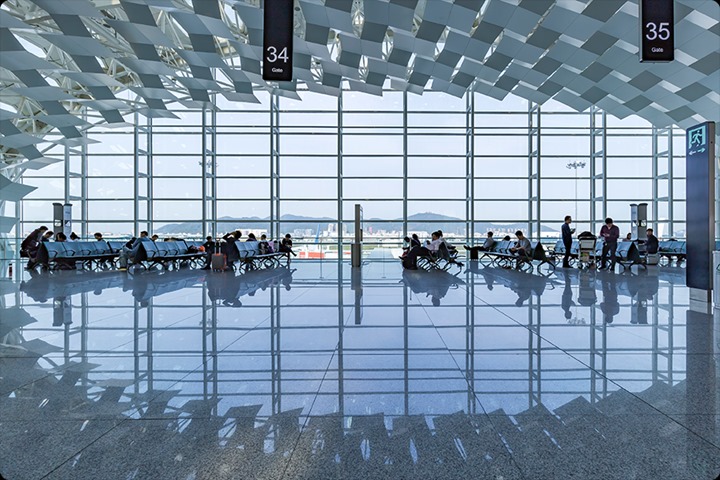SITA’s Air Transport IT Insights report for 2023, released today, reveals a year-on-year increase in IT spending for both airports and airlines, reaching an estimated USD 10.8 billion and USD 34.5 billion, respectively, with more than two-thirds of airport and airline CIOs anticipating continued growth into 2024. In 2022 and 2023, airports elevated IT spending as a percentage of revenue, emphasising the pivotal role technology will play in the future of travel.
Key investment priorities for aviation CIOs include implementing a biometrically enabled passenger journey, leveraging data for operational efficiencies, and adopting green solutions to optimise energy consumption and reduce emissions.
From streamlining the passenger experience to enhancing operations:
• Over half of airlines implemented IT solutions to enhance efficiency in check-in, bag tag, and boarding in 2023.
• Biometrics are gaining traction to alleviate congestion, with 70% of airlines expected to have biometric ID management by 2026, and 90% of airports investing in related programs or R&D.
• Airlines and airports are turning to innovative solutions for operations, with a focus on business intelligence (BI), artificial intelligence (AI), and data sharing.
• BI is the primary area of technology investment for airlines in the next three years, with 73% investing in major programs.
• Airlines and airports are embracing AI and machine learning, with 97% of airlines and 82% of airports planning investments by 2026 to leverage data for operational efficiency.
David Lavorel, CEO of SITA, emphasized the role of advanced data sharing and analytics tools in improving efficiency, allowing for agile, collaborative responses to disruptions in passenger flow and asset management.
Smart IT for sustainability:
• CIOs are prioritizing sustainability, targeting technology solutions for concrete emissions reductions.
• By 2026, over 90% of airlines plan to have IT to enhance the efficiency of flight operations and aircraft turnaround.
• Airports are focusing on building and energy management systems to offer a unified view of emissions, with investment in energy management systems expected to grow significantly.
Lavorel noted that airlines and airports are adopting digital tools for accurate monitoring and optimisation of energy consumption and emissions, aligning with industry goals to achieve net-zero CO2 emissions by 2050.
The research, representing the views of over 250 senior airline and airport executives, was conducted from August to November 2023, covering a quarter of global passenger traffic.






